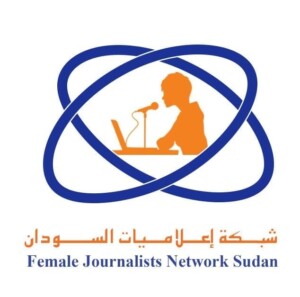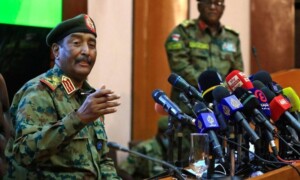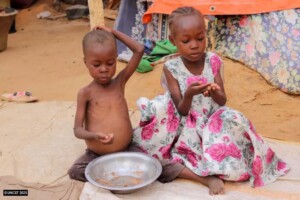EU delegation in Khartoum to discuss Sudanese democracy struggle
The Foreign Affairs Committee of the European Parliament paid a visit to Sudan yesterday where it met with Deputy Chairman of the Transitional Sovereignty Council (TSC) Gen Mohamed ‘Hemeti’ Dagalo and other TSC members in the Republican Palace in Khartoum. The delegation also met with the mainstream Forces for Freedom and Chance-Central Council (FFC-CC) and the Forces for Freedom-National Accord (NAF).
 Deputy Chairman of Sudan's Transitional Sovereignty Council Gen Mohamed ‘Hemeti’ Dagalo met with the head of the visiting European delegation David McAllister in Khartoum (social media)
Deputy Chairman of Sudan's Transitional Sovereignty Council Gen Mohamed ‘Hemeti’ Dagalo met with the head of the visiting European delegation David McAllister in Khartoum (social media)
The Foreign Affairs Committee of the European Parliament paid a visit to Sudan yesterday where it met with Deputy Chairman of the Transitional Sovereignty Council (TSC) Gen Mohamed ‘Hemeti’ Dagalo and other TSC members in the Republican Palace in Khartoum. The delegation also met with the mainstream Forces for Freedom and Chance-Central Council (FFC-CC) and the Forces for Freedom-National Accord (NAF).
The EU delegation is visiting Sudan to discuss the Sudanese democracy struggle with authorities and civil society.
In a press statement following the meeting, Chairman of the Committee David McAllister affirmed that the European Union stands by the Sudanese people to achieve their aspirations towards democracy through the formation of their civilian government.
He stated that the EU gives its “full and complete support to the Sudanese demand for democracy and democratic civil rule”.
‘The EU gives its full and complete support to the Sudanese demand for democracy and democratic civil rule’
McAllister also affirmed that the EU is willing to support the upcoming elections in the country and said that the EU is willing to provide further support to the tripartite mechanism to help bridge differences and facilitate democratic re-transition.
He also stressed that the EU stands ‘at the same distance from all parties’ and welcomed the army’s decision to withdraw from Sudan’s political scene. In Sudan, there is plenty of scepsis around the military’s announced ‘withdrawal’.
McAllister further emphasised the need for all actors to get involved in the political process and stressed the importance of dialogue and working hard to reach a unified vision that guarantees an exit from the current crisis. This ‘serious dialogue’ should involve civil parties ‘without exclusion’ to reach political consensus.
The importance of starting the transitional justice process and bringing to justice all those who committed human rights abuses through the government’s cooperation with the International Criminal Court in The Hague was also emphasised.
The European delegation said that any delay in agreeing and addressing the political crisis will lead to further deterioration of the economy and the humanitarian situation in the country and will increase the challenges faced by the Sudanese people.

Reassurances
Member of the Sovereignty Council Gen Shamseldin Kabbashi also met with the EU delegation and affirmed the government’s keenness to make the transitional period a success, and to support the democratic transition by expanding the political participation base and increasing consensus amongst different political forces.
During his meeting at the Republican Palace, Kabbashi highlighted the necessity to integrate different initiatives to come up with a single document to present and consolidate a unified political vision as the basis of a national dialogue.
Following the coup, Sudan has been in a political crisis and different groups are pulling in different directions to determine the course of Sudan’s political future. The mainstream Forces for Freedom and Change-Central Council (the coalition split earlier this year) has proposed their vision for Sudan’s political transition and so have various other groups, including supporters of the coup.
Sudan’s resistance committees also published charters and are now working to unify the different political visions.

Forces for Freedom and Change
The Foreign Relations Office of the mainstream Forces for Freedom and Change Central Council (FFC-CC) also met with the EU delegation at the office of the EU Commission in Khartoum.
They raised the need to stop violence against civilians and support a credible political process that leads to the establishment of a political system representing real democratic civilian rule.

The National Accord Forces (NAF), a split-off group of the FFC and an alliance of rebel groups that signed the 2020 Juba Peace Agreement and frequently supports the October 2021 coup, said that they also met the European delegation.
They stressed the necessity of handing over indicted persons to the International Criminal Court and of reforming judicial institutions in Sudan.
According to Noureldeim Taha, a leading member of the NAF, they also stressed the necessity of forming a civilian government “that includes all parties to the transitional period without exclusion” (including the military) and of broadening the base of participation.
NAF Secretary-General Mubarak called for a comprehensive dialogue that brings together all political parties except for the National Congress Party set up by Omar Al Bashir in 1998 and dissolved in 2019 by the government of PM Abdallah Hamdok after the fall of Al Bashir’s Islamist regime.
Ardol, who also is the director of the Sudanese Company for Mineral Resources, called on the European Union to play a mediating role and support the tripartite mechanism.
War in Tigray
Ardol also explained that the situation in Tigray was discussed in the meeting with the EU delegation.
The EU Foreign Affairs Committee delegation is not only visiting Sudan but also Ethiopia to discuss the Tigray conflict in both countries.











 and then
and then